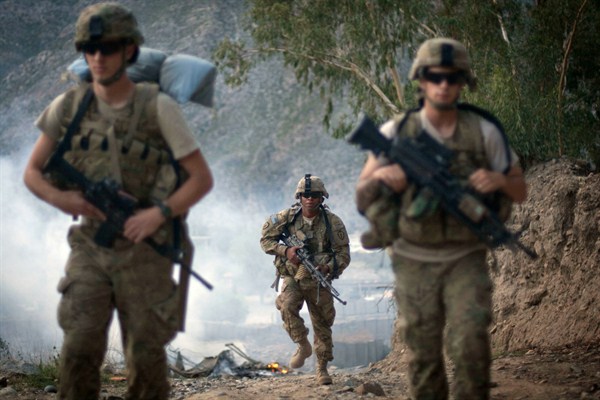If there is one big takeaway from The Washington Post’s publication of thousands of pages of documents detailing the extent of policy failures in Afghanistan, it is the great lengths that it takes to wake the American public up to the costs of pursuing a war without a strategy. As The Post’s examination of interviews produced as part of a wide-ranging and years-long review of U.S. policy by the Office of the Special Inspector General for Afghanistan Reconstruction, known as SIGAR, clearly shows, few officials charged with leading the war effort were willing to openly admit that most of what passed for strategy was purely ad hoc. I should know—I was one of the lead analysts and interviewers who led the “Lessons Learned” inquiry into U.S. strategy for SIGAR.
Since the publication of the Afghanistan Papers, veterans of America’s longest war have pointed out that the shortcomings of U.S. policy were well known to anyone who had ever done a tour of duty in Afghanistan. Those failures were advertised by members of the U.S. government in congressional testimony and by U.S. military officials themselves. They were also meticulously documented in the myriad audits produced by both SIGAR and the U.S. Government Accountability Office.
It was hardly a secret to anyone who spent time there that many American officials charged with managing U.S. reconstruction efforts were “devoid of a fundamental understanding of Afghanistan,” in the words of Doug Lute, the former Afghan “war czar” for the Bush and Obama administrations. It is important that Americans hear that, and that they hear it from the officials they vested with responsibility for overseeing the billions of dollars spent in the country. The fact that officials like Lute did so on the record in such stark terms during interviews with SIGAR staff understandably comes as a shock to some people. But from my perspective, the bigger shock is that it took 18 years and a three-year court fight to kickstart the national discussion about what has gone wrong and what has gone right in Afghanistan.

